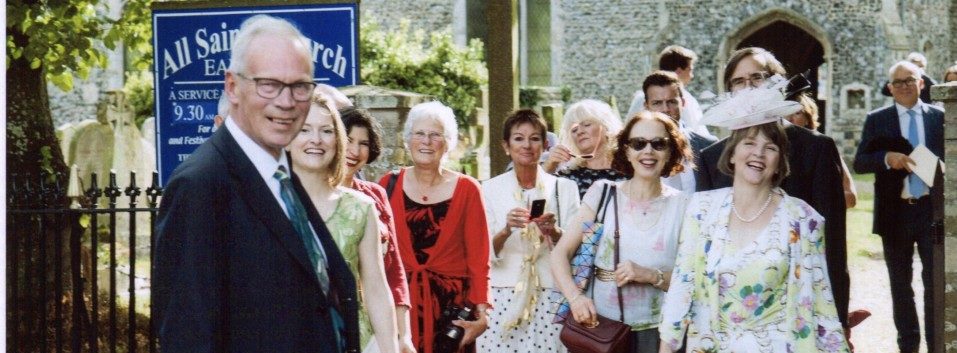I reached my anecdotage some years ago, which is probably why blogging has suited me so well for all these years. So, having whinged and whined, I have pulled myself together. Calling on memories and hopes of normality to come, Tim and I were talking at lunchtime about museums and art galleries – this was mostly me, to be fair, but he and I have our memories and sometimes they even overlap.
So the theme for the month is art and it may broaden out from galleries, because I’ve thought of musicians, actors – people, places, things and ideas (when I was a child, Wink and I had a series of four encyclopaedias of those names. I wonder if I still have them?).
I’m starting with the anecdote that started this all off. It’s the Musée des Beaux Arts in Brussels. Weeza was living there, 23 years ago, and Ro and I went to visit her at the beginning of December. It was incredibly cold. My mother had warned me – “they don’t call them the Low Countries for nothing,” she said darkly, which I still can’t make much sense of: still, she was right – to take my warmest clothes, but we were still bitterly cold.
One of the nicest meals I’ve ever eaten came out of our coldness, though. There’s a Square; the Place du Grand Sablon, where there was a tea shop, Not just a place to drink it, they also sold a huge range of fabulous teas. There was a little restaurant above, where we went for lunch. We each ordered a different tea – one had their Christmas blend, another their China Rose and the other had wintery spices, but I can’t remember who had what. They were all fabulous and we each had our own teapot with a litre of tea. We all ordered the roast beef salad, which was thin slices of delicious, rare roast beef and salad with a lovely dressing and we sat and enjoyed it all for quite two hours, and then bought lots of packets of tea and ventured out into the cold again.
Brussels was, at that time, surprisingly old-fashioned in some ways. A bit run down, I thought. The buildings were filthy with old smoke and pollution, like London in the 1960s. It’s probably changed now, but the pavements outside the Royal palace were weedy and, in the area round the European Parliament, they were pulling down wonderful old Flemish buildings to replace them with modern insignificance. The churches were dark with centuries of incense and candle burning and I just didn’t see any of the modern cosmopolitan city that I’d expected; which was not to say that it was without charm. We went to the Christmas market in the Grande Place and we visited the cinema twice, mostly to warm up, and we had several good meals. At least one was the traditional moules frites with Belgian beer and another was in a delightful little restaurant, which i’d call a bistro if it hadn’t been resolutely Flemish. We stared at the menu and didn’t understand a word of it and didn’t like to ask for a translation. I did manage a few words with my modest Dutch, but didn’t know what any of the meats were, so just hoped we weren’t going to eat horse.
What I really wanted to visit was the Musée des Beaux Arts, though and there was a specific reason. I’d read the poem when I was in my early teens.
About suffering they were never wrong,
The Old Masters: how well they understood
Its human position; how it takes place
While someone else is eating or opening a window or just
walking dully along;
How, when the aged are reverently, passionately waiting
For the miraculous birth, there always must be
Children who did not specially want it to happen, skating
On a pond at the edge of the wood:
They never forgot
That even the dreadful martyrdom must run its course
Anyhow in a corner, some untidy spot
Where the dogs go on with their doggy
life and the torturer’s horse
Scratches its innocent behind on a tree.
In Breughel’s Icarus, for instance: how everything turns away
Quite leisurely from the disaster; the ploughman may
Have heard the splash, the forsaken cry,
But for him it was not an important failure; the sun shone
As it had to on the white legs disappearing into the green
Water; and the expensive delicate ship that must have seen
Something amazing, a boy falling out of the sky,
had somewhere to get to and sailed calmly on.
I had always, for thirty years, wanted to see the painting. “The sun shone as it had to.” What a line. Everything about it, the captured image. I was in its city, in Breughel’s country, I wanted to see the painting that had inspired Auden to write the poem.
Weeza and Ro were perfectly happy to accommodate my wishes, for the first few hours. But the layout of the museum was, frankly, pretty dreadful. We spent the first hour solemnly staring at indistinguishable religious paintings from the mediaeval period. We found that nothing in the museum had been cleaned, ever, so some paintings were so dark that you could hardly make out the subject. There was a very bright note when someone spotted the Surrealist section. Ro and I were both pretty keen on Surrealism and we had a happy half hour there – I expect it was the highlight of the day for Weeza too, down in the basement with the Magrittes and the Dalis.
Eventually, I tracked down the paining I’d wanted to see all my more-or-less adult life. Weeza and Ro stared at it. I did too and was thrilled. It was all I’d hoped for. “Is that it?” asked Ronan. “Mum, remind me never to go to an art gallery with you ever again,” said Weeza.
